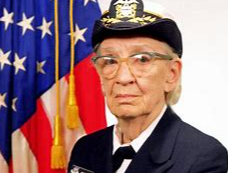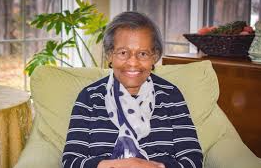CS Superheroes
Grace Hopper

Born on December 9, 1906, and leaving an influence on technology, Grace Hopper was an important figure in computer science who passed away on January 1, 1992. Her career was formed by her abilities and her dedication to development. Hopper has many accomplishments and includes creating one of the earliest compilers, which changed programming by converting instructions into code that was readable by machines. Her contributions to the creation of the Mark I calculator and later models, such as the Mark II and Mark III, were significant. Grace Hopper had a major impact on math and military technology in addition to computers. She performed calculations for the Nagasaki bomb during World War II, as well as rocket trajectories and range tables for anti-aircraft guns. The most important addition to her legacy is COBOL (Common Business-Oriented Language), a revolutionary computer language that continues to be used today and makes business application programming less difficult. Hopper had a career that included both the military and education. She studied mathematical physics at Yale University, where she also received her master's and doctorate degrees in mathematics. Then she later attended New York University to study under famous mathematician Richard Courant. Acknowledged for her extraordinary accomplishments, Hopper was awarded multiple honors, including Yale's Wilbur Lucius Cross Medal in 1972. She was also the oldest serving officer at the time, retiring as a rear admiral from the United States Navy at the age of 79.
Tim Berners-Lee

Tim Berners-Lee, who was born on June 8, 1955, is well known for creating the World Wide Web, which transformed international communication in 1989. Beyond this accomplishment, he made important contributions to compute science on several other fields. Berners-Lee improved the efficiency and display of digital content by creating a multitasking operating system and typesetting software. His invention Enquire simplified knowledge by enabling document linkage and research. Furthermore, the foundation of internet communication is made up of Berners-Lee's protocols, HTTP, HTML, and URL, which allow for smooth data flow. Through info.cern.ch, he democratized web developmen and encouraged innumerable artists. His accomplishments have been acknowledged with the 2013 Queen Elizabeth Prize for Engineering and admission into the Internet Hall of Fame. Following his graduation from Oxford University in 1976, Berners-Lee worked at Plessey Communications Ltd. and CERN. Overall, Tim Berners-Lee did not only create the World Wide Web, but also made honorable accomplishments in the field of technology.
Gladys West

Born on October 27, 1930, Gladys West shows strength and determination in the face of racism. Growing up at a time when women's opportunities and rights were limited, especially for many women of color, she defied society and persistently followed her passion of math. She went past expectations and set expectation for upcoming generations of women in STEM fields with her extraordinary academic achievement and search of knowledge. West's dedication to development and quality throughout her incredible career has made a lasting impression on the fields of technology and science/scientific discoveries. Her contributions to the GPS system's creation have transformed navigation technology and made it possible for people all over the world to navigate with previously undiscovered accuracy. Her reputation as an expert in mathematics and geography has also been established by her work on the Naval Ordinance Research Calculator and her mathematical modeling of the Earth's form.